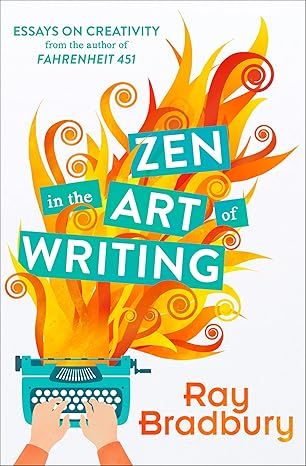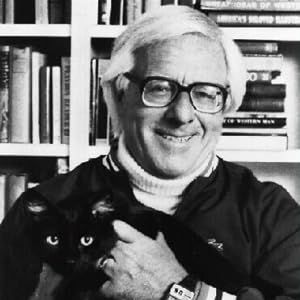Zen in the Art of Writing
4.4 out of 5
1,527 global ratings
The celebrated author of Fahrenheit 451 and The Martian Chronicles offers inspiration and insight on finding one’s muse and channeling it onto the page.
Acclaimed writer of novels and short stories as well as screen- and stage plays, Ray Bradbury has established himself as one of the most legendary voices in science fiction and fantasy. In Zen in the Art of Writing, he shares how his unbridled passion for creating worlds made him a master of the craft.
Part memoir, part philosophical guide, the essays in this book teach the joy of writing. Rather than focusing on the mechanics of putting words together, Bradbury’s zen is found in the celebration of storytelling that drove him to write every day. Bringing together eleven essays and a series of poems written with his own unique style and fervor, Zen in the Art of Writing is a must read for all prospective writers and Bradbury fans.
“Bradbury lovers will find this a Bradbury feast.” —Kirkus Reviews
191 pages,
Kindle
Audiobook
Hardcover
Paperback
Audio CD
First published May 20, 2015
ISBN 9780008136512
About the authors
Ray Bradbury
In a career spanning more than seventy years, Ray Bradbury, who died on June 5, 2012, at the age of 91, inspired generations of readers to dream, think, and create. A prolific author of hundreds of short stories and close to fifty books, as well as numerous poems, essays, operas, plays, teleplays, and screenplays, Bradbury was one of the most celebrated writers of our time. His groundbreaking works include Fahrenheit 451, The Martian Chronicles, The Illustrated Man, Dandelion Wine, and Something Wicked This Way Comes. He wrote the screen play for John Huston's classic film adaptation of Moby Dick, and was nominated for an Academy Award. He adapted sixty-five of his stories for television's The Ray Bradbury Theater, and won an Emmy for his teleplay of The Halloween Tree. He was the recipient of the 2000 National Book Foundation Medal for Distinguished Contribution to American Letters, the 2004 National Medal of Arts, and the 2007 Pulitzer Prize Special Citation, among many honors.
Throughout his life, Bradbury liked to recount the story of meeting a carnival magician, Mr. Electrico, in 1932. At the end of his performance Electrico reached out to the twelve-year-old Bradbury, touched the boy with his sword, and commanded, "Live forever!" Bradbury later said, "I decided that was the greatest idea I had ever heard. I started writing every day. I never stopped."
Read more
Reviews
Gary Moreau, Author
5
"OMG, way to rub it in, Ray!"
Reviewed in the United States on October 9, 2017
Verified Purchase
In most reviews I like to cite the money line—the one sentence or phrase that sums it all up for me. I couldn’t find one in this book. Not because it’s not chock full of wisdom but because I think of the money line as the emissary of inspiration and inspiration as the embodiment of hope.
Bradbury reminds us, however, that passion burns in all directions. “Eveywhere you look in the literary cosmos, the great ones are busy loving and hating.” While the sun bubbles away in the sky the core of the earth gurgles beneath our feet.
So I finally settled on this: “…if you re writing without zest, without gusto, without love, without fun, you are only half a writer. It means you are so busy keeping one eye on the commercial market, or one ear peeled for the avant-garde coterie, that you are not being yourself.”
“OMG, way to rub it in, Ray.” As an indie writer this line initially struck me as an evil thug stomping on a broken leg. Are you kidding me? Zest is all I have. I ooze zest. Is Bradbury really going to tell those of us who slog away in obscurity year after year that we’re just not zesty enough? We’re too focused on commercial success? Ha! Tell that to my wife.
The Internet, which I have increasingly come to see as the kind of evil alien you might find in a Bradbury novel, has turned the world of publishing on its head. Anybody can write. And anybody has the chance to be read.
But chance is not reality. And the great god of chance, in this case, has only grown in size and influence. The publisher has given way to the coder. The biased perception of the editor has given way to the even more biased but opaque ways of the algorithm. (One negative review on this site at the moment has close to 17,000 “helpfuls”, guaranteeing its prominence, and the helpful review doesn’t even reference the content of the book.)
Only one thing has remained constant: Them that has, gets. The branded writer has hundreds of reviews before a book is even released, much less read. The biggest names endorse the biggest names. The digital swarms follow the lead of the digital messiah to write the Tweet of the hit maker. “Kim likes it.” “Oprah loves it.” And did they just rummage around in the tumbling cage of fair chance to pull out the bingo number that they would take the time to consider? Not likely.
There has always been influence. But now the influence has been consolidated to the point where there is no hierarchy left. The tail of opinion is long but no longer substantial enough to have meaning, much less relevance.
And yet Bradbury has inspired me to trudge on. For, at the end of the day, it is obvious that Bradbury wrote for himself and for his characters. They were part of who he was. And maybe that’s ultimately where the zen comes in. Reality is an illusion. Calm the mind and find emptiness. Embrace it and it will bloom.
The titles of the last two poems in the book say it all: “Doing is Being,” and “We Have Our Arts So We Won’t Die of Truth.” Thank you, Ray Bradbury.
Read more
15 people found this helpful
Dee Arr
5
Something Special This Way Comes
Reviewed in the United States on July 11, 2017
Verified Purchase
Ray Bradbury’s book is actually a collection of previously published essays, pulled together under one roof. Some of the essays were originally book intros while others were published in other books or magazines.
I purchased the book without reading the advertising blurb, seeking to learn secrets from one of my favorite authors. Alas, one of the most prolific and descriptive writers is extremely mundane in his advice to aspiring writers. In short, WORK, RELAXATION, DON’T THINK (caps are Mr. Bradbury’s). Obviously, work is the operative word here, and if you haven’t already been writing on a regular basis, he suggests one to two thousand words a day, every day, for the next twenty years. Have an initial goal of one short story a week, fifty-two a year. What does Mr. Bradbury believe this will bring about? “…I believe that eventually quantity will make for quality.”
So if the book is not a teaching manual, why should one purchase it?
Fans of Ray Bradbury will enjoy the intuitive methods he used to create his stories and books. It was interesting to see how everyday events could produce a spark that he would turn into something wonderful. Writers reading between the lines will learn that each writer must discover his own road to creativity. Mr. Bradbury can point in the right direction, but it is each prospective author’s duty to forge his or her own way.
Along the way, the author shares with us his experiences as he worked his way into becoming a writer as well as the people who helped and shared and celebrated those success with him. Very enjoyable read. Five stars.
Read more
100 people found this helpful
S. Cranow
5
The Art of Writing from a Master Story Teller
Reviewed in the United States on October 18, 2017
Verified Purchase
Ray Bradbury is on of the foremost American writers in America, who better to help the writer learn his craft then one of the masters. I could say that it all happened when he was a small boy collecting Buck Rogers’s comics and then to be considered normal he ripped them u and threw them away. This was a sin against his soul, something he deeply regretted. So the young boy rebought the comics and decided to stay true to himself. Smart decision. The true writer must stay true to himself and find his own voice. The writer must live life to the fullest. For the writer cannot be a good writer if he or she does not live life to the fullest. He or she must have gusto and zest and it will infect his or her writing. Or should I say it will infuse his or her writing.
The writer by requirement to survive must write every day. Some writers will write a whole story in one day. Other writers will do only a few pages. The main thing is to write. Like any other art and in this I do consider sports and dance art forms, it must be practiced every day. Writing everyday does not only make the writer better at his or her craft but rather writing cleanses the writers mind. Along the way through these easy to read and equally entertaining chapters, Ray Bradbury will tell you about his writing experiences and over several good tidbits on how to boost creativity. One thing a writer must realize is that short stories or poems can become novels. Novels can turn into screenplays. Just because your work is rejected by one publisher does not mean it will not be accepted by another publisher. Remember you are not a failure at writing until you stop writing. Ray suggest writing every day even if you end up trashing 4/5 of what you write that one fifth is what will make it.
A couple of techniques that the beginning or struggling author might find useful are word lists and realizing that your characters are really alive. The word list is nothing more than a word association. You write down a word on a piece of paper and after you get enough of them start writing your own story. Don’t worry the subconscious will feed the rest . It is good to remember that when writing you should immediately write down your story. Just spit it out. Do not worry about editing or correcting the words just get the story out . Another technique is to create or discover the character and let the character run. Your character will run forward and write the story for you. All the aspiring author has to do is just narrate what was seen in the minds eye.
Poetry and screen writing have a lot in common. Whereas the novelist strive to write the word but ow sot need to condense words or turn a paragraph into a picture. As writer he was frustrated when he had to condense his writing by to thirds but it was done and it was a success. Poetry is a picture contained in a stanza or paragraph.
Writing is Zen. The author must find their voice and not be an imitation of others. There is only one you just like there is only Shakespeare. Do not write for money but rather work , don’t think and relax.
Read more
19 people found this helpful
T. L. Cooper
5
Finding Zen in Writing
Reviewed in the United States on July 17, 2023
Verified Purchase
Zen in the Art of Writing by Ray Bradbury surprised me on almost every page. Bradbury's collection of essays on writing were far more inspiring and uplifting than I expected. His blunt assessment of writing was uncomfortably familiar. His confidence in some essays bordered on overwhelming. Then he'd turn it around in another with a reminder of the doubts that accompany any artistic work. Zen in the Art of Writing pushed me to get to the computer and made me long to feel my hand moving a pen across a blank sheet of paper in spite of the fact he often referred to his typewriter. Bradbury reminded me that writing is a combination of hard work and letting one's imagination play. The poetry at the end of the book was a pleasant surprise! I enjoyed Zen in the Art of Writing far more than I expected to. Even looking at it on my desk right now makes me itch to get back to my writing projects.
Read more
5 people found this helpful
David C Taylor
5
A collection of essays that provide new vistas to examine.
Reviewed in the United States on January 18, 2022
Verified Purchase
This review is based on listening to the audiobook version of Zen in the Art of Writing. I’m not sure what I was expecting when I started listening, however the following pretty much sums up the experience - "Every morning I jump out of bed and step on a landmine. The landmine is me. After the explosion, I spend the rest of the day putting the pieces back together. Now, it's your turn. Jump!" Each chapter in his book made me feel like I had stepped on that landmine, and it was up to me to put myself back together – I mean this in only the best of ways. Mr. Bradbury helped me see writing in a very different light – as one who has toyed with the idea of writing something other than academic works, I feel like I’ve been allowed behind the wizard’s curtain or maybe behind the looking glass.
Read more
3 people found this helpful
Rich
4
...Interesting
Reviewed in the United States on February 28, 2021
Verified Purchase
As a fan of Bradbury who considers The Martian Chronicles and Fahrenheit 451 my biggest inspirations, it was a fascinating experience to dive headfirst into the psyche of their creator.
For those looking for a simple How-To guide for becoming a famous writer, as are rather common in storefronts these days, I wouldn't recommend it. In fact, most mentions of the publishing process have to been viewed in the context of their time.
However, that's not necessarily a bad thing. Getting to hear the story of Bradbury becoming published and speaking about his relationship to success, fame, money and his own writings was an interesting journey. I highly recommend it to anyone who wants to hear about a man who clearly loved his job, loved art in general and wanted to pass on that love to the next generation.
Read more
Ana G
4
Interesting
Reviewed in the United States on December 30, 2023
Verified Purchase
This is more a collection of essays than advice on writing, but it was still enjoyed reading them. It was cool to read about his life and insight into his !one while writing.

Tom L. Waters
4
delightful musings on creativity in writing by a master
Reviewed in the United States on May 27, 2009
Verified Purchase
This pleasantly readable book is a collection of various musings on the art of writing, book introductions, and mini-memoirs by Ray Bradbury, science fiction's bright-eyed eccentric uncle. Most of these pieces date from the 1970s and early 1980s, although a few are earlier. There's also some pieces of poetry at the end, which left me yawning.
Fans of Bradbury will delight in some of his recollections, such as writing Fahrenheit 451 in the basement of a public library on a pay typewriter (half hour for each dime you put in the box). I'm not his greatest fan myself. I remember enjoying Fahrentheit 451 but being disappointed by The Martian Chronicles. Of course, I was a science nerd at the time, and wanted my sf less fanciful than Bradbury often made his.
But books on writing by famous authors have two natural audiences: fans of the writer who want to know everything about him, and aspiring writers hoping to glean some useful advice or insight into the writer's art and craft. The former group are well served by this book. How about the latter?
I think they are too, by and large. The recurring message Bradbury offers to hopeful writers is this: write what you really care about, not what you think will sell or get you points with literature snobs. And, trust your subconscious to pull meaning and imagery out of the depths of your lived experience. Bradbury relates how he got most of his early story ideas by making a list of words that came to him: The Meadow, The Tow Chest, The Monster... Eventually, many of the words on his list percolated into story ideas. He also takes a very holistic view to inspiration. Instead of looking in specific places for ideas, he advises soaking up life as you live it, never knowing when something, having stewed, will re-appear as inspiration.
I like all this, and it's told in Bradbury's uniquely warm, exuberant, lyrical fashion.
However, I do take issue with one aspect of this book. In his quest to paint a picture of the writer as inspired artist, drawing on profound subconscious inspirations and remaining true to one's emotional compass, Bradbury makes it seem that success is nothing but inspiration and passion. He often describes writing a story in couple hours that sold immediately to a major magazine. This is not really a responsible image to give aspiring writers in 1990 (when this book was published), and it is even less so now. When Bradbury was starting his career, of course, the bar was a lot lower for publishing speculative fiction in the pulp magazines.
But there is more to it than that. There is a revealing remark in one of the essays in this book. Bradbury describes how he would typically write a short story on Monday, then spend the rest of the week revising it. This is getting closer to Edison's inspiration/perspiration quotient. While Bradbury waxes grandiose about the writer's vision, it turns out the nuts and bolts of the writer's craft occupied the bulk of his time, and was no doubt essential to his success.
With that caveat, I recommend this book to Bradbury fans or to any aspiring writer in a need of a breath of fresh air about why writing matters in the first place.
Read more
10 people found this helpful
Bryan Desmond
4
This is a man who has spent his lifetime writing because it's what he loves to do. So naturally he has written a book about that
Reviewed in the United States on August 6, 2017
Verified Purchase
This book reminds me of another book that I enjoyed. That being "On Writing" by Stephen King. It's sort of funny. When I first read "On Writing" I knew nothing of Stephen King's writing, I had not yet read any of it. It was a strange thing to read an author's book on writing without ever having read any of that authors actual writing. Be that as it may, I really enjoyed it. And now I've done it again.
This is, strangely enough, my first Ray Bradbury book. As was the case with King's book however, it didn't detract from the experience. You can sense from this book Bradbury's passion behind his writing, just as you could King's. This is a man who has spent his lifetime writing because it's what he loves to do. So naturally he has written a book about that writing. I have a feeling that, just like King, this little book will propel me forward into Bradbury's writing and that I have some wonderful future-experiences ahead of me.
Read more
32 people found this helpful
darswords
3
Good and Bad
Reviewed in the United States on June 26, 2014
Verified Purchase
Should I start with the good or the bad about this book? Eh, I'll just let it flow as it comes to me.
This was the paperback. The font was so tiny and the spaces between lines was tiny. I could only digest a page or two at a time.
This is written by a male who only spoke of mankind. Oh, he spoke of his wife a couple times. Once he said, and I can't find it to quote exactly, that his wife was appropriately quiet in response to his great idea. I know this was a time when women should be the rib and mothers of men. Not real people with their own minds and abilities. This macho writing was what my reading diet was as a young girl. This is why I look so hard for Bechdel approved work. And I don't just want two fems that talk a little to each other. I want fems of all shapes, sizes, ages, and belief systems. Please! Not another high-heels bimbo! But I digress. (ME?)
In spite of those problems of reading an old book, I found a lot of inspiration toward my own writing. In fact, the best chapter was called, On the Shoulders of Giants. I wanted to quote many line from that. I want to re-read it often. The book is worth the read if only for the tidbits in this section.
My favorite idea found in this book is his interpretation of science fiction and its importance to life itself. Sci-fi is the think-tank for science. Then science invents what we dreamed and it becomes a never-ending idea machine...and fems can add to that in great numbers and less wars!
Read more
7 people found this helpful
Top Ray Bradbury titles
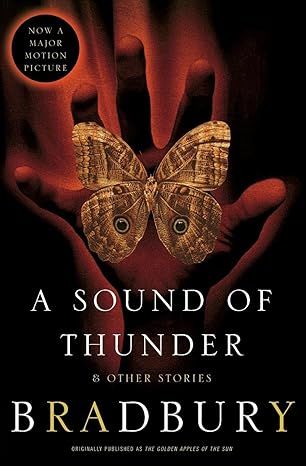
A Sound of Thunder and Other Stories
4.5
-
524
$13.09
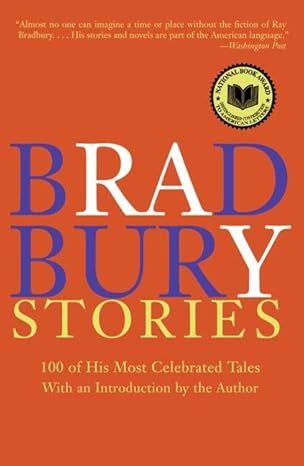
Bradbury Stories: 100 of His Most Celebrated Tales
4.7
-
1,363
$11.60
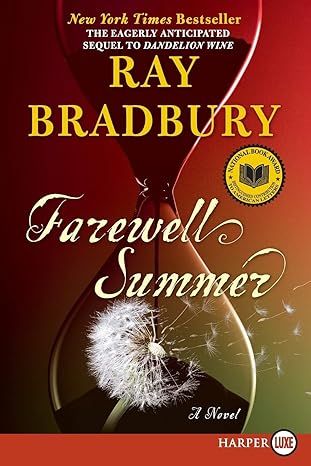
Farewell Summer
4.3
-
731
$0.99
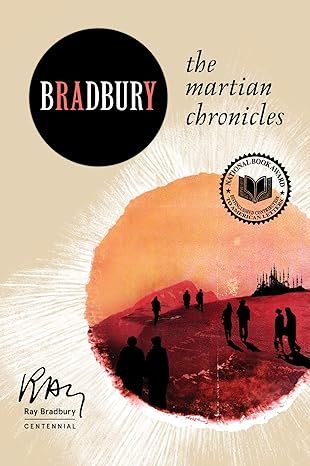
The Martian Chronicles
4.5
-
7,293
$0.99
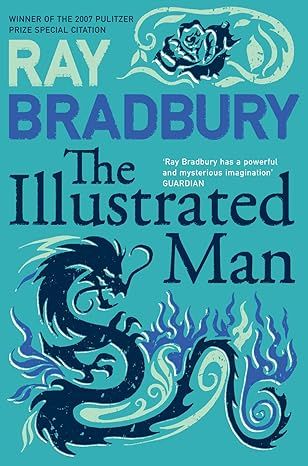
The Illustrated Man (Flamingo Modern Classics)
4.6
-
4,344
$9.31
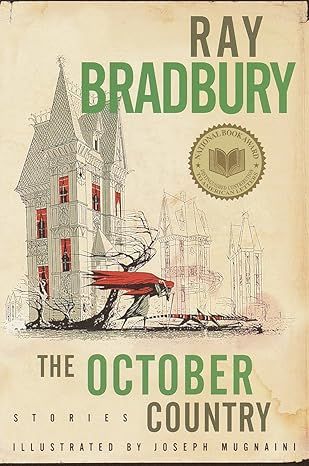
The October Country: Stories
4.6
-
1,736
$12.99
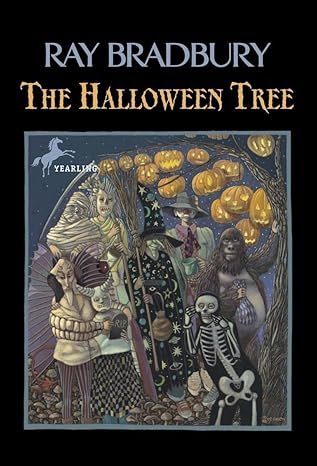
The Halloween Tree
4.6
-
3,112
$1.99
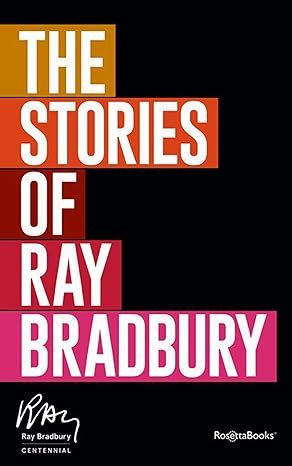
The Stories of Ray Bradbury: Introduction by Christopher Buckley (Everyman's Library Contemporary Classics Series)
4.7
-
1,003
$2.99
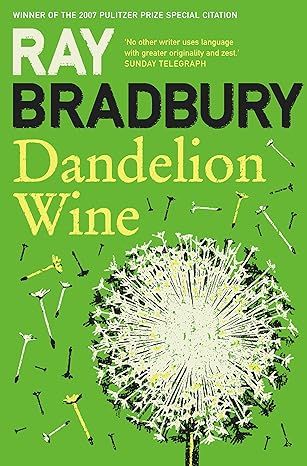
Dandelion Wine (English and French Edition)
4.5
-
3,529
$14.36
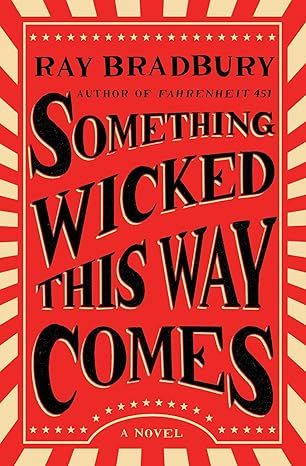
Something Wicked This Way Comes: A Novel
4.4
-
6,928
$0.99
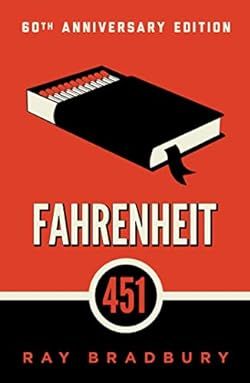
Fahrenheit 451
4.6
-
52,920
$4.68
Best Sellers

The Tuscan Child
4.2
-
100,022
$8.39

The Thursday Murder Club: A Novel (A Thursday Murder Club Mystery)
4.3
-
155,575
$6.33

Sapiens: A Brief History of Humankind
4.6
-
140,302
$13.49

The Butterfly Garden (The Collector, 1)
4.3
-
88,556
$9.59

Things We Hide from the Light (Knockemout Series, 2)
4.4
-
94,890
$11.66

The Last Thing He Told Me: A Novel
4.3
-
154,085
$2.99

The Perfect Marriage: A Completely Gripping Psychological Suspense
4.3
-
143,196
$9.47

The Coworker
4.1
-
80,003
$13.48

First Lie Wins: A Novel (Random House Large Print)
4.3
-
54,062
$14.99

Mile High (Windy City Series Book 1)
4.4
-
59,745
$16.19

Layla
4.2
-
107,613
$8.99

The Locked Door
4.4
-
94,673
$8.53
